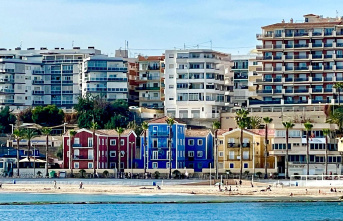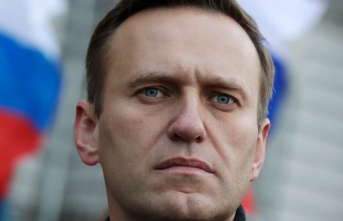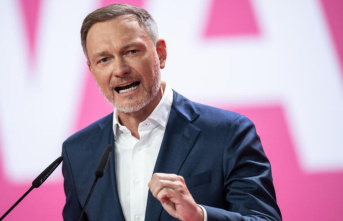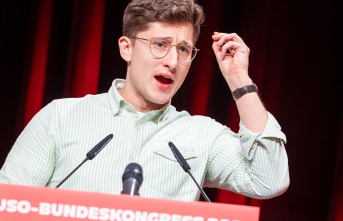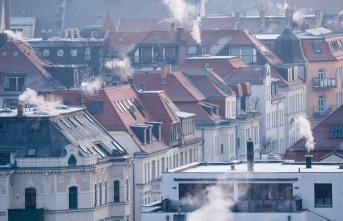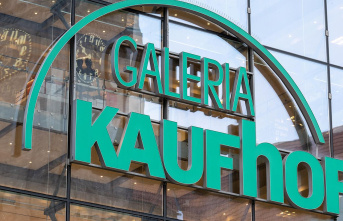After much back and forth, Chancellor Olaf Scholz (SPD) has promised Ukraine the delivery of Leopard 2 main battle tanks. In a first step, 14 Leopard tanks from Bundeswehr stocks are to be made available to Kyiv. According to the federal government, the aim is to "assemble two tank battalions with Leopard 2 tanks for Ukraine" together with partner countries.
Several states - including Poland, the Netherlands and Great Britain - had previously announced that they would also send Western-style main battle tanks. Only a few hours after the German commitment, the USA also announced that they wanted to deliver 31 M1 Abrams main battle tanks.
The decision of the federal government and the long road to it were also followed carefully - and sometimes sceptically - abroad. While many media are now talking about "good news", there is also sharp criticism of the Chancellor's hesitation. The international press review at a glance.
"Rzeczpospolita" (Poland): The German government will send Leopard tanks to Ukraine and, above all, give other countries the opportunity to donate their stocks of German-made tanks - up to a hundred pieces - to the attacked Kyiv. This is very good news. Firstly for the Ukrainians, because with the best western vehicles they can better prepare to repel the next Russian offensive. It is also a good decision for our region. Germany's inability to make bold decisions has contributed to weakening the unity of Central Europe.
"Lidove noviny" (Czech Republic): Germany is in a situation that is difficult for outsiders to understand. On the one hand, it faces accusations that German tanks will kill where they killed 80 years ago. But if the federal government had decided not to supply tanks to Kyiv, it would have been accused of using its pacifism to enable Russians to kill in Ukraine. It took a long time for Chancellor Olaf Scholz to get the arguments for supplying tanks to slow down Russian aggression. (...) It remains to be seen how much the long hesitation has damaged Berlin's reputation among its western allies. Perhaps the Germans have already lost their leading role in Europe. Because who knows how the whole thing would have turned out without the pressure from the USA, Poland and the Scandinavian countries."
"Le Figaro" (France): This strategic decision represents a turning point in the war. It must be noted, however, that it was taken in a jumble, prompted by Poland and others who were willing to accept the normally necessary green light from Berlin to renounce. The Europeans lead like penguins bumping into each other in pack ice: everyone wants to be in the middle of the force, not in front or to the side. (...) And all this without a well-thought-out battle plan, but under tireless pressure (from the Ukrainian President) Volodymyr Zelenskyy.
"Neue Zürcher Zeitung" (Switzerland): Scholz just got the curve again, at the last minute, so to speak, his hesitation and hesitation was just grotesque in the end. For decades, Germany has benefited from NATO solidarity, but for months its head of government has not given the impression of wanting to contribute just as wholeheartedly to the defense of Eastern Europe. (...) With the decision to even send modern Leopard 2A6s to the Ukraine, Olaf Scholz seems to have overcome this inner impulse. He's committed. Germany no longer wants to be the brake pad in Europe. Finally, one must say.
"de Volkskrant" (Netherlands): Chancellor Olaf Scholz made his decision under strong internal and external pressure - ten months after the original request from Kyiv. The decision is in line with the pattern of Western arms support to Ukraine, which, while increasing, has so far only been enough to keep Ukraine afloat and not really push Russia back. The question of whether the support offered by the United States and European countries in recent weeks is doing more than maintaining a bloody standoff cannot now be answered.
"Público" (Portugal): "Under pressure from European partners and the USA, Germany has overcome its indecisiveness. (...) For the Kremlin, Germany's decision is not good news, as Ukraine's defense capability will be increased before a new Russian offensive. While the tanks are not a guarantee that Ukraine could liberate lost territory and win this war, they do ensure a united front to resist Vladimir Putin's attack. The tanks have one purpose: to prevent Putin from winning. That is no small thing.
"The Times" (UK): "Germany's approval of the deployment of Leopard tanks, albeit late, avoided a damaging protracted tug of war within NATO. Western solidarity with Ukraine remains strong even after almost a year of war Despite doubts from the Republican majority in the US House of Representatives, there is no sign that the Biden administration, which has already spent more than $18 billion on aid to Ukraine, will reduce its support.
Wall Street Journal (USA): The belated decision bridges what has become a growing rift in the NATO coalition over support for Ukraine. Poland applied for an export license and threatened to send some of its Leopard tanks without Berlin's consent. Britain had already announced it would send 14 Challenger tanks, and other European countries are keen to do the same. Germany risked becoming a pacifist European outlier. (...) In this situation he (Chancellor Olaf Scholz) demanded that the USA deliver their top-class Abrams tanks so that it would not appear that Germany was going it alone.



